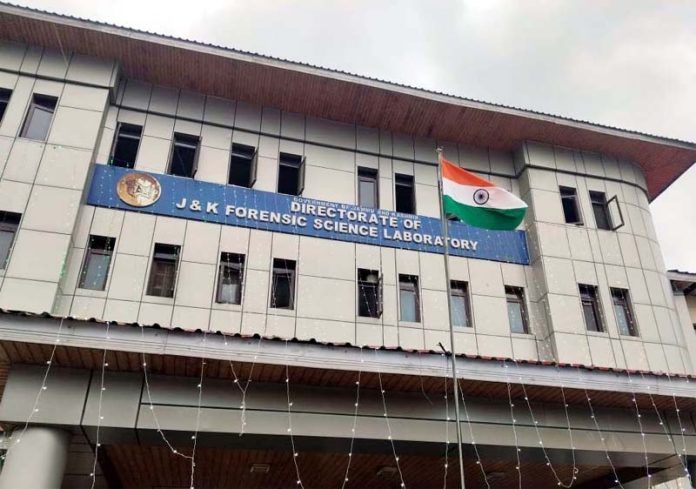Genetic Data Publication Paves Way for Enhanced Justice Delivery and Disease Management in J&K

JAMMU, NOV 11: The Forensic Science Laboratory (FSL) in Jammu and Kashmir has made history by publishing the first-ever genetic data on a hyper-variable Short Tandem Repeats (STR's) of human population in the Union Territory (UT), which was recently published in the International Journal of Legal Medicine (IJLM).
The study, conducted on 694 unrelated individuals randomly selected from the large population to uncover the genetic implications of demographic dynamics in the region, revealed significant admixture and genetic connections between different districts of Kashmir with neighboring Central Asian and Arab countries linked through the ancient Silk Route.
In contrast, Jammu districts displayed notable genetic similarities with adjoining states within the Indian Union. However, adjacent geographically located Ramban, Reasi, and Kishtwar districts were found to be genetically dispersed among them.
"This groundbreaking study has far-reaching implications for justice delivery in the courts," said lead author Dr. Nadeem Mubarik. "DNA evidence presented in court will now be supplemented by statistical data presenting weight of evidence, leading to more reliable verdicts."
Director FSL Gurmukh Singh commended the contributions of all authors and emphasized that this breakthrough will significantly enhance justice delivery in courts, ultimately boosting conviction rates in DNA-related cases, particularly in POCSO (Protection of Children from Sexual Offenses) cases.
"This publication is poised to revolutionize research and development in our FSL J&K," said Officer-in-Charge, Srinagar, Syed Ishfaq Manzoor. "It will have a lasting impact on the justice delivery system in J&K, contributing to more accurate DNA analysis and improved disease management."
